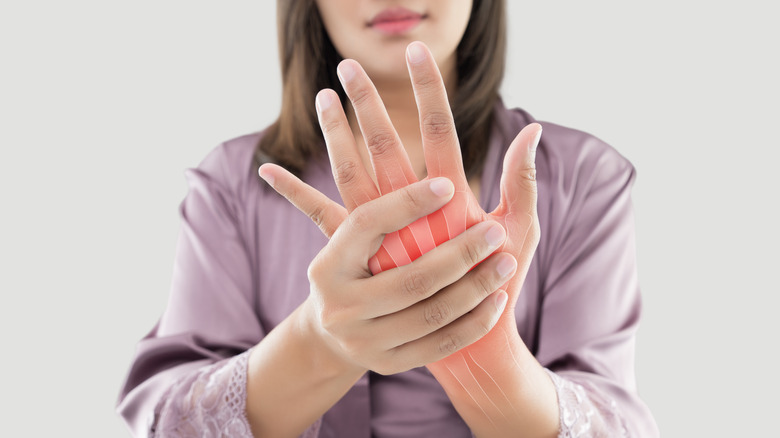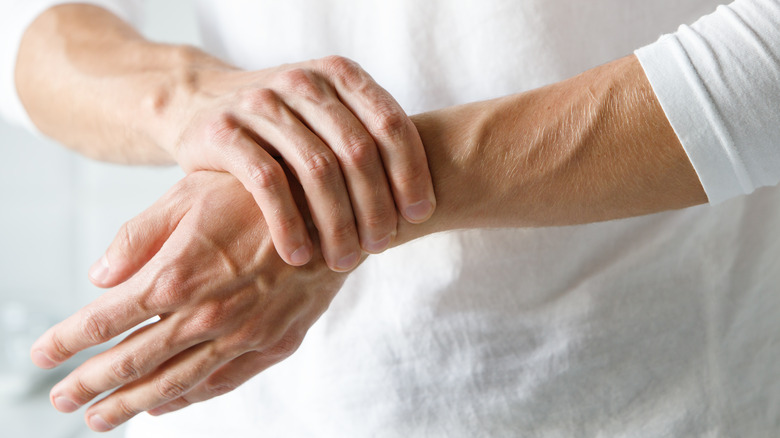What Does It Mean When Your Non-Dominant Hand Cramps?
Despite being extremely painful, muscle cramps are relatively harmless, according to Mayo Clinic. Sure, it may not seem like it at the time, but once the pain has subsided your muscles tend to go back to normal. It's usually a case of paying attention to how much you use certain muscles during strenuous exercise or how long you stay in a certain position to avoid the dreaded cramp from surfacing. Sometimes, muscle cramps can even be a result of dehydration. Not keeping up on your fluid intake can often trigger cramps, as a lack of water can decrease the blood volume, according toDripDrop, which leads to poor circulation.
In the case of cramps happening in a particular muscle, this can often be a combination of muscle strain and overuse, per Healthline. So when a cramp occurs in areas of the body that are pretty underused, like your non-dominant hand, it can be pretty confusing. But like many muscles in the body, you probably haven't realized exactly how much you rely on your non-dominant hand.
You probably use your non-dominant hand a lot more than you may think
For those who aren't lucky to be ambidextrous, the majority of tasks that require a steady hand are given to your dominant hand. But that's not to say that you're non-dominant appendage is just limply hanging there. Without realizing it, you use this hand for a multitude of things — you just don't rely so much on it.
Take typing, for example. The left part of your keyboard is dominated by your non-dominate hand, and if your job involves a lot of typing, you'll probably find that you're overusing your hand muscles if they start to cramp. The same goes for certain sports that involve both hands, or any other tasks you do repeatedly throughout the day — including cleaning, gaming, or even cooking.
If you think your cramps are a result of something over than dehydration, strain, or overuse — sometimes, hand cramps can actually be a symptom of an underlying health condition, per Medical News Today, such as electrolyte imbalances or rheumatoid arthritis — it's best to consult with your doctor.

